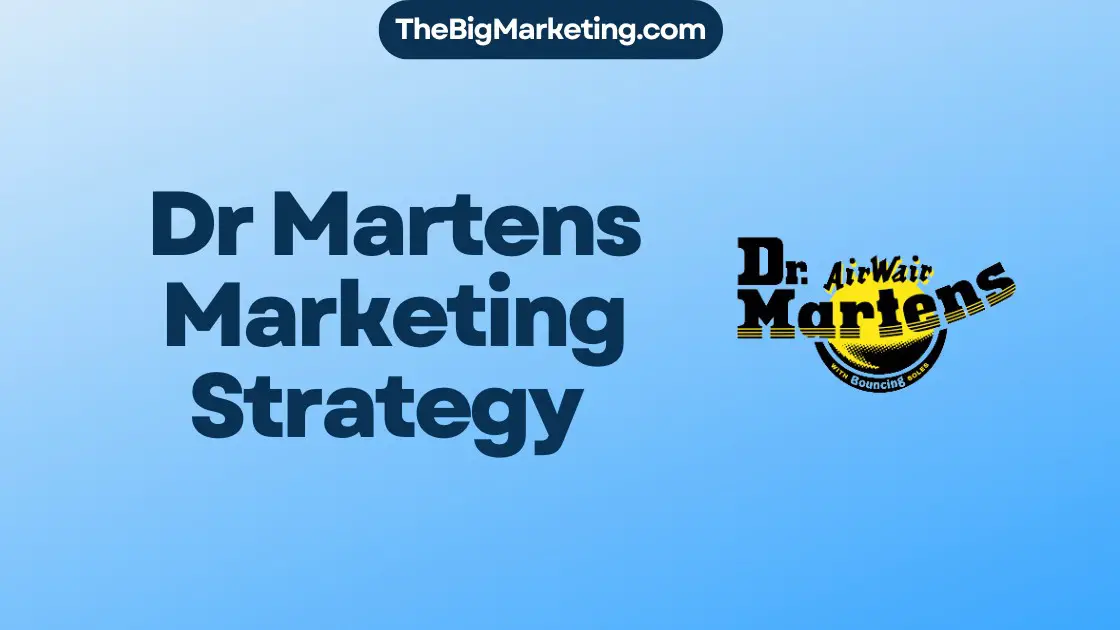Manchester United, one of the most iconic football clubs in the world, has established itself as a powerhouse not only on the field but also in the realm of marketing and branding. With a rich history and a massive fanbase, the club’s marketing strategy has been instrumental in cementing its global reach and commercial success.
By leveraging effective football club marketing techniques and implementing innovative digital promotion strategies, Manchester United has managed to create a strong brand presence that resonates with fans around the world. Through sports marketing campaigns and Premier League club promotions, the club has successfully captured the hearts and minds of football enthusiasts.
The key to Manchester United’s marketing success lies not only in its strategic partnerships and sponsorship deals but also in its commitment to engaging with fans through various channels. The club has embraced the power of social media platforms, digital media, and mobile applications to connect with its global fanbase on a deeper level.
Key Takeaways:
- Manchester United has a proactive approach to securing sponsorships with leading brands, ensuring a diversified portfolio of regional and global partnerships.
- The club has successfully leveraged digital media platforms and social media channels to engage with its global fanbase.
- Manchester United’s strong brand presence and extensive merchandise sales revenue contribute to its financial stability and growth.
- The club faces challenges in balancing commercial success with on-field performances, highlighting the need for a holistic approach to marketing and sporting excellence.
- Manchester United’s investment in player acquisitions, infrastructure, and future marketing strategies will shape its outlook and competitiveness in the football industry.
Segmentation and Targeting in Football Marketing
Manchester United’s marketing strategy leverages the concept of football market segmentation to identify and target specific consumer groups. The club recognizes the importance of understanding the characteristics and preferences of their target audience in order to effectively engage with them.
Football market segmentation involves dividing the overall football fanbase into distinct groups based on demographics, interests, behaviors, and other relevant factors. By segmenting the market, Manchester United can tailor their marketing messages and initiatives to resonate with different consumer segments.
The club’s primary target audience consists of football fans around the world, with a specific focus on men aged 15 and above. This demographic represents a significant portion of the club’s fanbase and is most likely to engage with Manchester United through various channels.
Football consumer segmentation further helps Manchester United refine their target market by considering additional factors such as geographical location, level of fandom, purchasing power, and digital behavior. This allows the club to create personalized marketing campaigns that cater to the unique needs and preferences of different segments within their target audience.
The success of Manchester United’s marketing strategy can be measured through various indicators, including the number of fans attending games, interacting with the club’s website and mobile applications, and engaging on social media platforms. These metrics demonstrate the club’s ability to effectively reach and engage with their target market, further solidifying their position as a leading football brand.
Key Segments in Manchester United’s Target Market
Manchester United’s understanding of their target market goes beyond basic demographics. The club identifies several key segments that contribute to their overall success:
- Local fanbase: This segment includes fans from the Greater Manchester area and surrounding regions who have a strong connection to the club.
- National supporters: Manchester United has a sizable fanbase across the United Kingdom, attracting supporters from different regions of the country.
- International followers: A significant portion of the club’s fanbase resides outside of the UK, with fans from countries such as the United States, China, India, and Nigeria.
- Digital enthusiasts: Manchester United has successfully embraced digital media platforms, attracting fans who regularly engage with the club’s website, mobile applications, and social media channels.
By targeting these specific segments within their broader target market, Manchester United can deliver tailored content and experiences that resonate with each group’s unique characteristics, interests, and preferences.
| Segment | Description | Key Characteristics | Targeted Marketing Strategies |
|---|---|---|---|
| Local fanbase | Fans from the Greater Manchester area and surrounding regions | Strong connection to the club, attend matches frequently | Promote local events, exclusive offers for match tickets |
| National supporters | Fans from different regions of the United Kingdom | UK-focused content, regional marketing initiatives | Collaborations with local businesses, fan events across the UK |
| International followers | Fans residing outside of the United Kingdom | Strong global presence, diverse backgrounds | Localized content, international fan events, online merchandise sales |
| Digital enthusiasts | Fans who engage with the club’s digital platforms | Frequent website and app usage, active on social media | Social media campaigns, digital content exclusives, interactive experiences |
By understanding the different segments within their target market, Manchester United can develop Targeted Marketing Strategies that cater to each group’s unique needs and preferences. This approach allows the club to maximize their engagement and build lasting connections with their diverse fanbase.
Global Brand Building and Expansion
Manchester United has established itself as a powerhouse in the world of football, not only for its on-field achievements but also for its remarkable global brand reach and fanbase. With over 1.1 billion followers worldwide, the club has captivated fans across continents and cemented its position as one of the most iconic and recognized football clubs on the planet.
One of the key drivers of Manchester United’s global brand success is its merchandise sales revenue, which consistently surpasses £200 million annually. Fans from every corner of the globe proudly wear their Manchester United jerseys, scarves, and other club merchandise, displaying their unwavering support and loyalty.
Another significant aspect of Manchester United’s global brand expansion is its iconic sponsorship deals. The club has forged high-profile partnerships with globally recognized brands like Adidas and Chevrolet, creating mutually beneficial relationships that enhance the club’s financial stability and global visibility. These iconic sponsorship deals not only provide substantial financial resources but also play a crucial role in increasing brand exposure and attracting new fans.
Manchester United’s commitment to building a global brand has been a result of its success on and off the field. The club’s ability to engage fans worldwide and deliver a compelling brand experience has been instrumental in creating a loyal and passionate fanbase that extends beyond geographical boundaries.
Digital Marketing and Fan Engagement
Manchester United understands the importance of digital presence and social media engagement in today’s digital age. The club has successfully leveraged various digital media channels to create meaningful fan interactions and drive fan engagement.
At the forefront of their digital media strategy is a strong social media presence. Manchester United boasts over 73 million followers on Instagram alone, showcasing the club’s massive global reach. Through engaging and interactive social media posts, the club has successfully captured the attention and loyalty of its fans worldwide.
With social media as a powerful tool, Manchester United has been able to connect with fans on a deeper level. The club encourages fan interaction through various means, including live Q&A sessions with players and behind-the-scenes content. This active engagement with fans not only strengthens the bond between the club and its supporters but also boosts fan loyalty and creates a sense of community.
In addition to fan interaction, Manchester United’s digital media strategy extends to marketing campaigns and merchandise sales. The club effectively utilizes its digital platforms to promote new merchandise, drive sales, and create a seamless online shopping experience for fans. Manchester United’s digital marketing efforts have proven successful in generating revenue and increasing brand visibility.
Overall, Manchester United’s digital marketing and fan engagement strategies have solidified the club’s position as a leader in the realm of sports digital media. Their ability to connect with fans, drive engagement, and leverage digital platforms for marketing success sets a benchmark for other football clubs striving to enhance their digital presence.
| Benefits of Manchester United’s Digital Marketing Strategy | Examples |
|---|---|
| Increased fan engagement | Live Q&A sessions with players |
| Global brand visibility | Social media posts reaching millions of followers |
| Revenue generation | Successful merchandise sales campaigns |
| Strong fan loyalty | Active and interactive social media presence |
Sporting Challenges and Inconsistencies
Despite Manchester United’s remarkable marketing success off the field, their on-field performances have been inconsistent, posing numerous challenges for the club. One of the key areas of concern has been the frequent managerial changes, which have disrupted team cohesion and stability. These disruptions have hindered the development of a cohesive and effective playing style, adversely affecting the team’s performance in both domestic and European competitions.
Another obstacle that Manchester United has faced is player recruitment issues. The club has struggled to identify and secure top-tier talent in recent years, resulting in a diluted squad and an imbalanced team. This has had a direct impact on their on-field performance, as the team lacks the necessary depth and quality to consistently compete at the highest level.
Furthermore, Manchester United has encountered difficulties in the transfer market. The club has struggled to negotiate deals for their desired targets, often failing to secure key signings. These transfer market struggles have further exacerbated the club’s on-field challenges, as they are unable to significantly strengthen their squad and address critical areas of weakness.
Managerial Instability
One of the primary causes of Manchester United’s on-field inconsistencies has been the frequent changes in managerial personnel. The lack of stability in the dugout has hindered the club’s progress and prevented the implementation of a long-term vision. Each managerial transition necessitates a period of adjustment and adaptation, disrupting the team’s synergy and impeding their on-field performance.
Moreover, the constant managerial changes have led to inconsistent playing styles and tactical approaches. This inconsistency has made it challenging for the players to establish a cohesive understanding of the game plan, resulting in disjointed performances on the pitch.
It is crucial for Manchester United to find stability in their managerial structure, allowing the team to develop and flourish under a consistent leadership framework. Establishing stability will foster a sense of continuity and enable the players to build upon previous experiences, ultimately enhancing their on-field performance.
Challenges in Achieving Sustained Success
A significant hurdle that Manchester United has faced is the inability to sustain success in both domestic and European competitions. While the club has experienced periods of triumph and dominance, they have struggled to maintain consistency and follow through with sustained success.
The reasons for this inconsistency are multifaceted. In addition to the managerial instability discussed earlier, factors such as a lack of cohesive team chemistry, poor player form, and tactical shortcomings have all contributed to the club’s struggles in consistently challenging for major honors.
Manchester United must address these challenges if they aspire to regain their winning ways. Efforts must be made to build a cohesive team with a strong blend of experienced professionals and talented young players. Additionally, the club needs to develop a clear and effective long-term strategy to consistently compete and succeed at the highest level. Undertaking these measures will help overcome the existing sporting challenges and propel Manchester United towards sustained success.
With a renewed focus on addressing managerial instability, resolving player recruitment issues, and finding success in the transfer market, Manchester United aims to restore their on-field glory. By overcoming these challenges and building a strong foundation for consistent performance, the club can aspire to regain their position among the elite of European football.
Financial Management and Ownership Impact
The Glazer family’s ownership of Manchester United has been a subject of both success and controversy. Under their stewardship, the club has made significant investments in player acquisitions and infrastructure, bolstering its commercial success. However, these investments have also led to the accumulation of substantial debt.
The decision-making process and club governance have faced criticism, with some questioning the prioritization of commercial success over on-field performance. The Glazer family’s emphasis on generating revenue has occasionally overshadowed the pursuit of sporting excellence.
The Glazers’ approach to financial management has been characterized by securing lucrative sponsorships and partnerships, amplifying the club’s commercial success. Manchester United has forged iconic sponsorship deals with brands like Chevrolet and Adidas, enabling the club to generate substantial revenue and expand its global brand reach.
However, this emphasis on financial gain has at times fueled dissent among fans and critics, who argue that it has come at the expense of sustained sporting success. The pressure to maintain a strong brand presence and meet financial expectations can have implications for player recruitment, managerial stability, and overall performance on the field.
Comparative Analysis with Other Top Clubs
When examining Manchester United’s marketing strategy, it’s essential to compare it with other top European clubs like Bayern Munich and Liverpool. This comparative analysis sheds light on the importance of adopting a balanced approach that emphasizes both commercial success and on-field achievements.
Bayern Munich Marketing Strategy
Bayern Munich, a powerhouse in German football, has implemented a comprehensive marketing strategy that has propelled the club to national and international success. They have utilized a combination of traditional and digital marketing channels to engage with fans and attract sponsors.
One of Bayern Munich’s key strategies involves a strong emphasis on their brand identity. They have created a unified brand image that resonates with their target audience, resulting in a loyal fanbase and successful merchandise sales.
Additionally, Bayern Munich has been proactive in securing high-profile sponsorship deals, such as their partnership with Adidas. This collaboration not only brings in significant financial resources but also contributes to building their global brand presence.
The club’s success can be attributed to their consistent on-field performance and ability to win domestic and European titles. This creates a positive cycle where sporting achievements bolster their commercial value and attract more sponsors.
Liverpool Marketing Strategy
Liverpool Football Club has also implemented an impressive marketing strategy that has allowed them to become one of the most renowned and successful football clubs globally. Their approach emphasizes fan engagement and storytelling.
Liverpool has leveraged social media platforms effectively to engage with their fans, creating a sense of community and belonging. Their online presence is characterized by regular updates and behind-the-scenes content, which fuels fan interaction and loyalty.
The club’s marketing strategy also focuses on storytelling and emotional connections. Liverpool has effectively communicated their rich history, traditions, and values to fans, generating a deep sense of connection and passion for the club.
Furthermore, Liverpool has secured iconic sponsorship deals, such as their partnership with Nike. This collaboration not only brings financial benefits, but it also enhances their global brand recognition and marketability.
Like Bayern Munich, Liverpool’s success on the field has been crucial in building their brand identity and attracting sponsorships. Their recent achievements, including winning the Premier League and the UEFA Champions League, have further solidified their position as a top club.
When comparing Manchester United’s marketing strategy with that of Bayern Munich and Liverpool, it becomes evident that a balanced approach is vital for sustained success. While commercial success and global branding are essential, they must be complemented by on-field achievements to maintain fan loyalty and attract sponsors.
Manchester United should continue to leverage their global brand and financial resources to support their sporting ambitions. By striking a balance between commercial success and on-field excellence, the club can create a solid foundation for long-term success and remain competitive in the ever-evolving football landscape.
Financial Benefits and Sporting Performance
Manchester United’s financial resources have played a significant role in maintaining the club’s competitiveness in the transfer market. With a strong financial foundation, the club has been able to attract top talent and make strategic acquisitions to strengthen the team.
The ability to invest in high-profile transfers has given Manchester United an edge in building a formidable squad that can compete at the highest level. These investments have been crucial in shaping the team’s performance on the field and enhancing its prospects in domestic and international competitions.
However, the effectiveness of these financial resources in driving sporting success has been a subject of debate. While Manchester United has made substantial investments, there have been instances where the returns on these investments have not met expectations. This has raised questions about the club’s transfer strategy and the ability to effectively utilize financial resources for optimal results.
In addition to financial resources, Manchester United’s strong global brand brings with it a unique set of challenges. The club’s success and popularity have created a high-pressure environment where expectations are always sky-high. Fans, sponsors, and stakeholders expect consistent success and a level of performance that matches the club’s brand reputation.
This brand pressure can have a profound impact on managerial decisions and player performances. Managers are constantly under scrutiny to deliver results, often facing immense pressure to meet the demanding expectations set by the club’s global fanbase. Players, too, face the weight of expectations and must perform at their best to meet the standards associated with the Manchester United brand.
Despite the challenges brought by brand pressure and high expectations, Manchester United’s financial resources provide the club with the means to continue competing at the highest level. The club’s ability to attract top talent and invest in player development ensures that it remains a formidable force in domestic and international competitions.
Nevertheless, striking a balance between financial resources, brand pressure, and sporting expectations is crucial for sustainable success. Manchester United must ensure that its investments translate into on-field results and that the club’s strong global brand continues to be a driving force behind sporting achievements.
Impact of Marketing Success on Sporting Performance
The marketing success of Manchester United has yielded significant financial benefits for the club. Through effective commercialization strategies, Manchester United has secured lucrative sponsorships, partnerships, and merchandise sales, resulting in increased revenue streams. These financial resources have allowed the club to invest in player acquisitions and infrastructure, ensuring competitiveness in the sporting arena.
However, the pursuit of commercial success has presented sporting challenges for Manchester United. Balancing the demands of marketing and finance with on-field performance is a delicate endeavor. The club faces the constant pressure to meet expectations from fans and sponsors, who anticipate consistent sporting excellence alongside the financial gains.
The focus on marketing and brand building requires careful management to avoid compromising the sporting integrity of the club. While financial benefits enhance resources for player transfers and other operational aspects, the ultimate measure of success lies in the performance on the field. Manchester United’s commercialization efforts must align with the club’s sporting objectives and uphold the traditions and values associated with the sport of football.
The Challenge of Balancing Commercialization and Sporting Excellence
Manchester United’s marketing initiatives have transformed the club into a global brand, expanding its reach and fanbase. The club’s success in commercial endeavors has elevated its financial standing, but this success has not always translated into consistent on-field performances.
The pursuit of financial gains can lead to a shift in priorities, with a greater emphasis on marketability rather than purely sporting achievements. This presents a challenge for Manchester United, as the club must strike a delicate balance between commercialization and sporting excellence. While financial resources are essential for sustained success, it is equally important to prioritize sporting development and nurture the core essence of competitive football.
Manchester United’s marketing and commercialization efforts must be carefully aligned with the sporting values and aspirations of the club. Investments in player recruitment, coaching, and infrastructure should not be overshadowed by financial gains but rather guided by a long-term vision of achieving success both on and off the field.
The club’s management faces the challenge of maintaining a harmonious equilibrium between financial benefits and sporting challenges. While marketing success brings financial advantages, they should be channeled back into strengthening the sporting aspects of the club – nurturing talent, fostering a winning culture, and ensuring continuous improvement in performance.
Manchester United’s dedication to maintaining a strong sporting legacy while reaping the rewards of marketing success is essential for both the club’s long-term sustainability and the satisfaction of its loyal fanbase.
Striking a Balance for Future Success
In order to navigate the intricate relationship between marketing success and sporting performance, Manchester United must continue to evolve and adapt. The club must invest in strategies that prioritize both financial stability and on-field excellence, ensuring they remain at the forefront of the footballing world.
Future success for Manchester United hinges on finding the optimal balance between commercialization and sporting achievements. With the right approach, the club can leverage its strong global brand, fanbase, and financial resources to overcome challenges and create a sustainable and prosperous future.
By aligning their marketing and commercial activities with the club’s sporting aspirations, Manchester United can foster an environment that cultivates success, both commercially and on the field. Balancing financial benefits and sporting challenges is the key to ensuring Manchester United remains a force to be reckoned with in the world of football.
Investment and Future Outlook
Manchester United’s investment in player acquisitions, infrastructure, and marketing strategies will play a crucial role in determining the club’s future. The financial stability of the club, coupled with sustained on-field success, are key factors that will shape Manchester United’s outlook going forward.
Investing in top-quality players is vital for maintaining a competitive edge in the highly competitive football landscape. Manchester United’s commitment to investing in talented individuals who can contribute to the team’s success demonstrates their dedication to achieving long-term goals.
In addition to player acquisitions, investment in infrastructure is also essential. The development of state-of-the-art training facilities, stadium upgrades, and technological advancements will enhance the club’s performance capabilities and provide a solid foundation for sustained success.
Furthermore, Manchester United’s marketing strategies are instrumental in generating revenue, expanding the club’s global reach, and engaging with fans. Effective digital marketing campaigns, strategic partnerships, and innovative branding initiatives will further solidify the club’s position as a global football powerhouse.
Financial Stability
Financial stability is pivotal for Manchester United’s future prospects. A robust financial framework allows the club to make strategic decisions, withstand economic fluctuations, and invest in long-term projects. By ensuring financial stability, the club can navigate uncertainties and focus on building a sustainable and prosperous future.
Manchester United’s global brand appeal, massive fanbase, and commercial partnerships provide significant revenue streams, contributing to its financial stability. These factors allow the club to operate on a solid financial footing, driving continuous growth and enabling further investments.
Additionally, prudent financial management and responsible spending practices are crucial for maintaining financial stability. By effectively managing expenses and optimizing revenue streams, Manchester United can secure its financial position and create a sustainable platform for future success.
Future Prospects
The future prospects of Manchester United are promising, provided the club continues to make prudent investments, focus on financial stability, and maintain a commitment to excellence both on and off the field.
By leveraging its rich history, passionate fanbase, and global brand, Manchester United has the potential to dominate both European and domestic football competitions. The club’s strategic plans, coupled with a visionary leadership approach, will pave the way for a prosperous future.
Furthermore, Manchester United’s ability to adapt to changing market dynamics, embrace technological advancements, and consistently innovate will position the club at the forefront of football’s ever-evolving landscape.
As Manchester United continues to invest in player talent, infrastructure, and marketing strategies, it solidifies its position as one of the leading football clubs in the world. By maintaining financial stability and focusing on future prospects, Manchester United is poised for sustained success and a bright future in the football industry.
Challenges and Opportunities Ahead
Manchester United is currently facing challenges on multiple fronts. The club’s on-field performance has been inconsistent, with fluctuations in form and results. This inconsistency has raised questions about the team’s ability to consistently compete at the highest level of football. Additionally, managerial stability has been an issue, with frequent changes in coaching staff disrupting the team’s progress and long-term planning.
Another challenge the club faces is the decision-making process. The Glazer family ownership has been a subject of controversy, with critics questioning the focus on commercial success over on-field achievements. This has led to debates about the club’s future strategies and the impact they will have on the team’s performance.
However, amidst these challenges, Manchester United also has ample opportunities to overcome adversity and build a successful future. The club’s global brand and fanbase provide a strong foundation to leverage. By effectively utilizing their global reach, Manchester United can attract new sponsors, secure lucrative partnerships, and enhance their financial resources.
Furthermore, the club’s financial stability, despite the debt incurred under the Glazer family ownership, can facilitate future investments in player acquisitions and infrastructure. By making strategic and well-thought-out investments, Manchester United can strengthen its squad and create an environment conducive to sustained success.
To capitalize on these opportunities, the club needs to strike a balance between commercial success and sporting excellence. By prioritizing both financial growth and on-field achievements, Manchester United can rise to the challenges they currently face and establish themselves as a dominant force in football once again.
Conclusion
Manchester United’s journey in implementing their marketing strategy has been a tale of two realities. While the club has achieved remarkable success in terms of commercial partnerships, global branding, and financial resources, their on-field performance has faced several challenges and inconsistencies.
It is essential for Manchester United to strike a delicate balance between their commercial success and their sporting excellence. While leveraging their global brand, dedicated fanbase, and financial resources effectively, the club must also focus on strengthening their on-field performances to meet the expectations of both fans and sponsors.
As Manchester United moves forward, it will be crucial for them to address the contrasting realities and find solutions that align their marketing success with sustained sporting achievements. By investing wisely in player acquisitions, improving decision-making processes, and enhancing their managerial stability, the club can aim for lasting success in both the commercial and sporting arenas.







